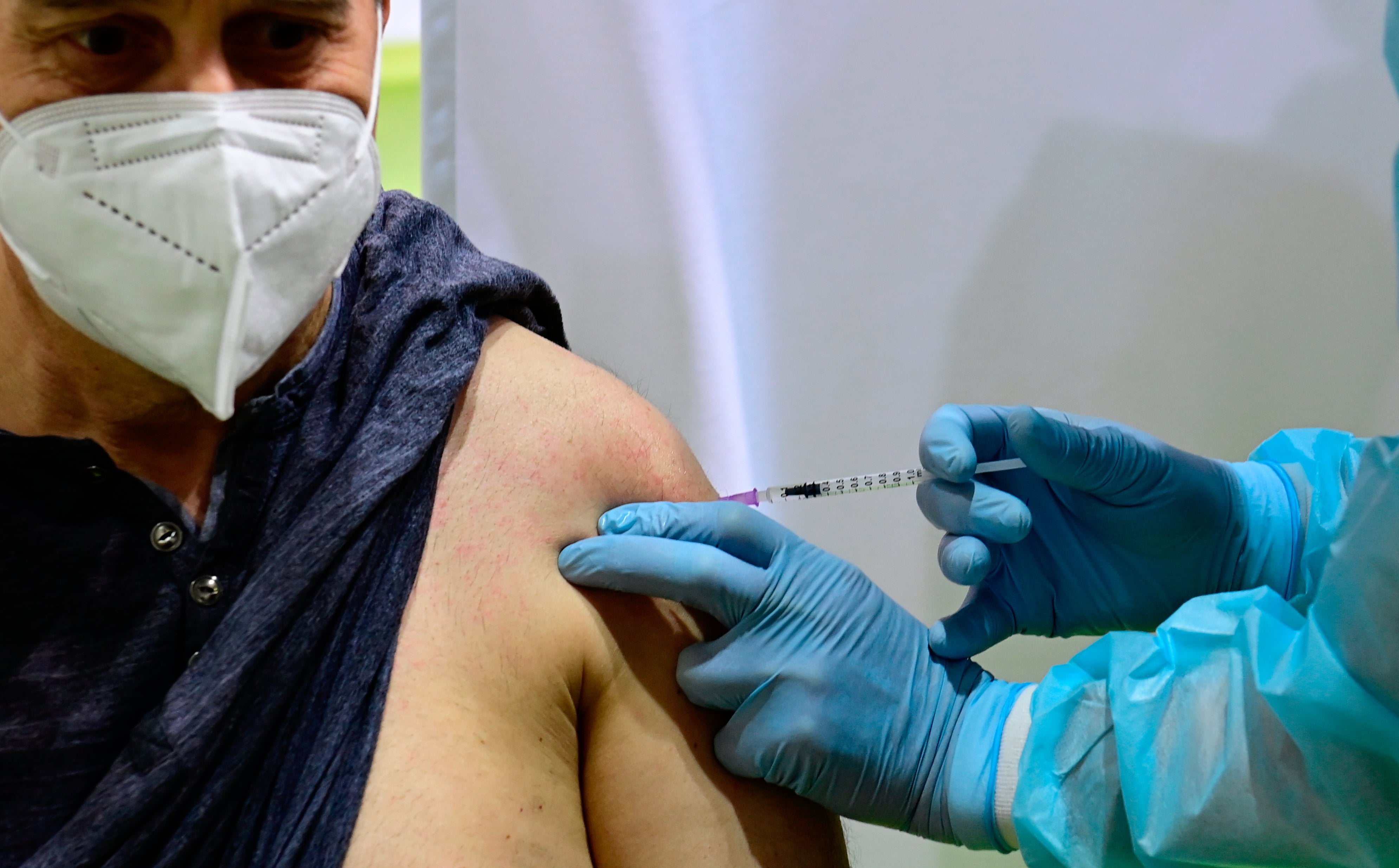Germany postpones vaccination summit over AstraZeneca furor
The German government says it will postpone a virtual summit on the country’s vaccination efforts until after the European Medicines Agency has met over reports of dangerous blood clots in some recipients of the AstraZeneca’s COVID-19 vaccine

Your support helps us to tell the story
From reproductive rights to climate change to Big Tech, The Independent is on the ground when the story is developing. Whether it's investigating the financials of Elon Musk's pro-Trump PAC or producing our latest documentary, 'The A Word', which shines a light on the American women fighting for reproductive rights, we know how important it is to parse out the facts from the messaging.
At such a critical moment in US history, we need reporters on the ground. Your donation allows us to keep sending journalists to speak to both sides of the story.
The Independent is trusted by Americans across the entire political spectrum. And unlike many other quality news outlets, we choose not to lock Americans out of our reporting and analysis with paywalls. We believe quality journalism should be available to everyone, paid for by those who can afford it.
Your support makes all the difference.The German government said Tuesday it will postpone a virtual summit on the country's vaccination efforts until after the European Medicines Agency has met over reports of dangerous blood clots in some recipients of AstraZeneca’s COVID-19 vaccine.
A growing number of European countries — including Germany France, Italy and Spain — suspended use of the AstraZeneca vaccine on Monday, though the company and international regulators say there is no evidence the shot is to blame.
The German government and the country's 16 state governors had planned to meet Wednesday for a virtual summit on the country's slow vaccination campaign and on ways to speed it up. But in a statement Tuesday morning, the government said the summit would be postponed until after the EMA's meeting, which is scheduled for Thursday.
AstraZeneca’s formula is one of three vaccines in use on the European continent. But the escalating concern is another setback for the European Union’s vaccination drive, which has been plagued by shortages and other hurdles and is lagging well behind the campaigns in Britain and the U.S.
The EU’s drug regulatory agency will review experts’ findings on the AstraZeneca shot and decide whether action needs to be taken.
Elsewhere, much of Asia has shrugged off concerns about the AstraZeneca jab, with Thailand’s prime minister receiving a shot at the start of the country's use of the vaccine on Tuesday.
“There are people who have concerns,” Prayuth Chan-ocha said after his faccination. “But we must believe doctors, believe in our medical professionals.”
Thailand initially was the first country outside Europe to temporarily suspend using the AstraZeneca vaccine. But Thailand’s health authorities later decided to go ahead with AstraZeneca, with Prayuth and members of his Cabinet receiving the first shots.
Indonesia suspended use of the vaccine on Monday, saying it was waiting for a full report from the World Health Organization regarding possible side effects.
AstraZeneca has developed a manufacturing base in Asia, and the Serum Institute of India, the world’s largest vaccine maker, has been contracted by the company to produce a billion doses of the vaccine for developing nations. Hundreds of millions more are to be manufactured this year in Australia, Japan, Thailand and South Korea.
AstraZeneca has said there have been 37 reports of blood clots out of more than 17 million people vaccinated in the 27-country EU and Britain. The drugmaker said there is no evidence the vaccine carries an increased risk of clots.
In fact, it said the incidence of clots is much lower than would be expected to occur naturally in a general population of this size and is similar to that of other licensed COVID-19 vaccines.
Australia’s chief medical officer, Paul Kelly, said there was no evidence so far that the vaccine causes blood clots.
“Blood clots happen, they happen in Australia fairly commonly,” he said. “But, from my perspective, I do not see that there is any specific link between the AstraZeneca vaccine and blood clots, and I’m not alone in that opinion.”
___
AP reporters around the world contributed to this report.
___
Follow AP’s pandemic coverage at https://apnews.com/hub/coronavirus-pandemic, https://apnews.com/hub/coronavirus-vaccine and https://apnews.com/UnderstandingtheOutbreak